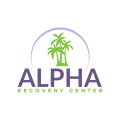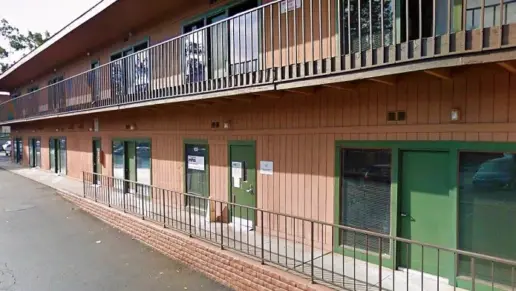About Women’s Recovery Services
Women’s Recovery Services on Hendly Street in Santa Rosa, California helps women who are expecting or have young children find support through their journey to sobriety and motherhood. Women receive residential treatment in a compassionate and supportive environment for them and their children.
Support includes a very structured programming schedule each day. There are evidence-based groups that help address trauma, improve self-esteem, offer parenting education, teach the importance of non-violent communication and build healthy relationships. Therapeutic child care is provided to help women focus on recovery, while children can focus on healing too.
Life skills, communication, and positive goals for mothers and families are the ultimate goals of the program. Parenting educators, therapists, child care providers and mental health and addiction specialists help women through the 120 day program in residential care. There is an aftercare program that lasts between a year and two depending on the family’s needs. A graduation candlelight night is held to acknowledge and celebrate the successful completion of residential treatment and aftercare.
There is also transitional housing available to graduates of the WRS residential treatment program.
Treatment isn’t just about addiction recovery at WRS, it is about life recovery. Women receive support in addressing medical and psychological health concerns or conditions. They help women heal from the past and prepare for a healthier and more self-aware future for themselves and their children. Lives and generations are changed by changing the habits, choices, resources and opportunities of one woman.
Each woman is supported and healed until she realizes her own worth and her own power to change the trajectory of her life and the lives of her young children. Each day and each moment can be a step to a brighter, healthier, more joyful life. Women learn their choices and mindset are what makes the difference.
There is a sliding scale for fees based on an individual’s ability to pay. They are private pay with financial contracts. It is important to check with your personal health insurance provider to see what coverage may be available to you for treatment. Private insurance is accepted in many cases.
Accepted Insurance
Other Forms of Payment
Private insurance refers to any kind of healthcare coverage that isn't from the state or federal government. This includes individual and family plans offered by an employer or purchased from the Insurance Marketplace. Every plan will have different requirements and out of pocket costs so be sure to get the full details before you start treatment.
Self-pay involves paying for treatment out of your own pocket. You can use savings or credit, get a personal loan, or receive help from family and friends to fund your treatment. If you don't have insurance or your insurance plan doesn't cover a specific program, self-pay can help ensure you still get the care you need.
Sliding scale payments are based on a client's income and family size. The goal is to make treatment affordable to everyone. By taking these factors into account, addiction recovery care providers help ensure that your treatment does not become a financial burden to you or your family, eliminating one barrier to care.
Addiction Treatments
Levels of Care
Treatments
The goal of treatment for alcoholism is abstinence. Those with poor social support, poor motivation, or psychiatric disorders tend to relapse within a few years of treatment. For these people, success is measured by longer periods of abstinence, reduced use of alcohol, better health, and improved social functioning. Recovery and Maintenance are usually based on 12 step programs and AA meetings.
Drug rehab in California teaches participants constructive ways to stay clean and sober. Treatment revolves around helping individuals stop using the substance they are addicted to and learn healthy habits to avoid relapse.
Many of those suffering from addiction also suffer from mental or emotional illnesses like schizophrenia, bipolar disorder, depression, or anxiety disorders. Rehab and other substance abuse facilities treating those with a dual diagnosis or co-occurring disorder administer psychiatric treatment to address the person's mental health issue in addition to drug and alcohol rehabilitation.
Opioid rehabs specialize in supporting those recovering from opioid addiction. They treat those suffering from addiction to illegal opioids like heroin, as well as prescription drugs like oxycodone. These centers typically combine both physical as well as mental and emotional support to help stop addiction. Physical support often includes medical detox and subsequent medical support (including medication), and mental support includes in-depth therapy to address the underlying causes of addiction.
Substance rehabs focus on helping individuals recover from substance abuse, including alcohol and drug addiction (both illegal and prescription drugs). They often include the opportunity to engage in both individual as well as group therapy.
Programs



Clinical Services
Cognitive behavioral therapy in California is a method that therapists often use for the effective treatment of substance use disorders. It is based on the principle that substance abuse stems from unhelpful ways of thinking and patterns of behavior, which can be changed by helping the individual learn better ways of coping.
In individual therapy, a patient meets one-on-one with a trained psychologist or counselor. Therapy is a pivotal part of effective substance abuse treatment, as it often covers root causes of addiction, including challenges faced by the patient in their social, family, and work/school life.
For clients who are struggling with ambivalence toward change, motivational interviewing in California can help strengthen their commitment to change. Using a conversational method, the therapist helps you explore your motivations and empowers you to make the changes you desire.
Trauma therapy addresses traumatic incidents from a client's past that are likely affecting their present-day experience. Trauma is often one of the primary triggers and potential causes of addiction, and can stem from child sexual abuse, domestic violence, having a parent with a mental illness, losing one or both parents at a young age, teenage or adult sexual assault, or any number of other factors. The purpose of trauma therapy is to allow a patient to process trauma and move through and past it, with the help of trained and compassionate mental health professionals.
Life skills trainings involve all the skills a person must have in order to function successfully in the world. These include time management, career guidance, money management, and effective communication. Truly successful addiction recovery is based on the ability to not only live substance-free, but to thrive. Life skills teaches the practical necessities of functioning in society, which sets clients up for success in life, and therefore sobriety.
Contact Information
98 Hendley Street
Santa Rosa, CA 95404















